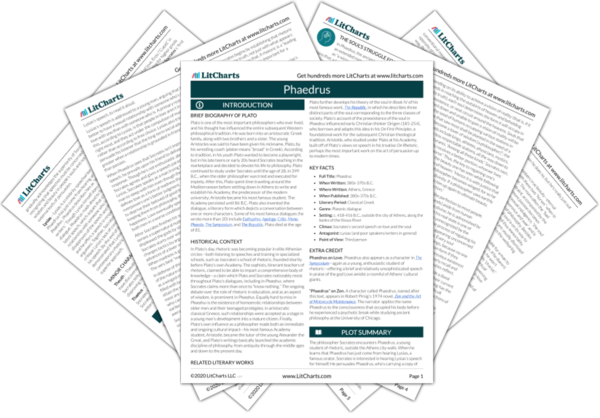The term “logos” in Greek can have many shades of meaning—it can refer to words, speeches, talking, everyday discussion, and philosophical discourse. Frequently used throughout
Phaedrus, the word is used at various times in…
read analysis of Speech/Logos
